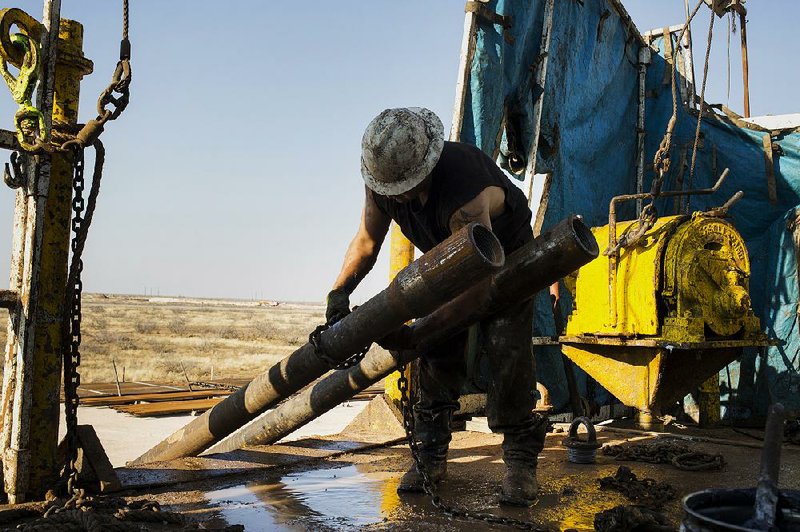As U.S. energy companies seek to cut costs and spending during the lingering oil slump, there is one place they can count on to save money: the oil patch.
RELATED ARTICLES
http://www.arkansas…">Utilities in state to lower gas bills http://www.arkansas…">Chevron to lop up to 7,000 positions
Since the bottom fell out of the oil market last year, the result of a market glut and sluggish demand, companies such as Murphy Oil have been saving money by demanding oil-field services companies lower their prices by 20 percent to 30 percent, analysts say.
The savings, combined with more efficient drilling, have helped an industry struggling with a 50 percent drop in oil prices. Producers can rely on low prices for some time, analysts said.
"I think definitely service companies will continue discounting because they want to continue working," said Gerad Dugas, senior industry analyst with RigData, which collects information on drilling activity.
Oil producers have been working to lower capital spending and other costs.
When Murphy Oil released its third-quarter earnings report earlier this week, the El Dorado company emphasized that it is continuing to make "significant improvements" it reducing both its operating, and general administrative expenses.
The company's lease-operating expenses, which include labor, water-disposal, maintenance and other costs, were 23 percent lower in the 2015 third quarter than the same period a year ago, Murphy Oil Chief Executive Officer Roger Jenkins said Thursday during a conference call with analysts.
"We like most peers continue to see efficiencies and cost reductions in drilling and completion activity across all of our operating areas," he said.
A spokesman for Murphy Oil did not return phone calls or an email seeking further comment.
While producers will continue to see cheaper prices for oil-field services, their productivity gains will take a hit, Dugas said.
"I think right now it's going to be hard because people are spending less money on [research and development], probably ... but I think there's always room for more efficiency gains," he said.
Drilling at the easier well sites is completed quicker, said Luana Siegfried, an analyst with Raymond James, in an email.
"What the companies are managing with all of the efficiency gains is actually to curb the timeline necessary to drill a well," she said.
Larger oil companies will benefit more than smaller one in reduction of oil-field costs, because they don't carry as much debt, analysts said.
"Everybody knows the company's cash flow is driven by the price of oil and when it comes down like this, they have to do something to adjust," said Michael Lynch, president of Strategic Energy and Economic Research Inc.
"If [an oil company] can cancel an expensive project, is that just reducing their budget or are they going to move some of the money somewhere cheaper," he said.
Some oil companies already have begun to pull out of big projects. Royal Dutch Shell PLC withdrew from offshore drilling in Alaska and quit an oil-sands project in Canada.
If companies were to redirect their money to cheaper fields, there could be a jump in oil production from U.S. shale formations, Lynch said.
Business on 10/31/2015
